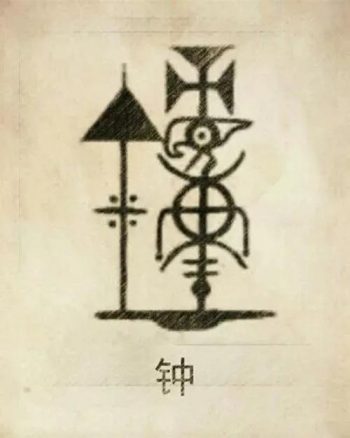The Zhong(zhōng) surname is one of China’s oldest and most culturally rich family names, with a history that spans over three millennia. From its origins in ancient feudal states to its modern-day global presence, the Zhong surname has played a significant role in shaping Chinese civilization. This article explores the origins, historical figures, cultural significance, and social impact of the Zhong surname, offering a comprehensive look at its enduring legacy.

Ⅰ、Origins of the Zhong Surname:
1. Zi Clan Origin:
During the late Shang Dynasty, Weizi Qi, a descendant of the Shang royal family, was granted the fiefdom of Song. His descendant, Gongzi Lie, was awarded the territory of Zhongyi (modern-day Fengyang, Anhui), and his descendants adopted "Zhong" as their surname.
2. Ying Clan Branch:
During the early Zhou Dynasty, descendants of Bo Yi (ancestor of the Ying clan) were granted the state of Zhongli (modern-day Linyi, Shandong). After the state was annexed by Chu, its people adopted "Zhongli" as their surname, later simplified to "Zhong."
3. Mi Clan Origin:
A nobleman from the Chu state, Zhong Jian, was granted the territory of Zhongwu (modern-day Xinyi, Jiangsu), and his descendants adopted "Zhong" as their surname.
4. Official Title Origin:
During the Zhou Dynasty, the position of "Zhong Shi" was responsible for managing ceremonial bells. Descendants of these officials adopted "Zhong" as their surname.
5. Ethnic Assimilation:
She Ethnic Group: A Han Chinese man named Zhong Zhishen married into the She ethnic group, and his descendants retained the Zhong surname.
Manchu and Mongolian: During the Qing Dynasty, the Manchu Zongjia clan and the Mongolian Zhongji clan adopted the Zhong surname, enriching its diversity.
Ⅱ、 Historical Figures:
1. Ancient Figures:
Zhong Ziqi: A musician from the Spring and Autumn period, his friendship with Yu Boya and their story of "High Mountains and Flowing Water" is a timeless symbol of friendship in Chinese culture.
Zhong You (Zhong Yao): A calligrapher from the Three Kingdoms period, known as the father of regular script. His work Declaration of the Imperial Court influenced Chinese calligraphy for centuries.
Zhong Kui: A legendary figure from the Tang Dynasty, revered as a demon queller and a symbol of justice in Chinese folklore.
Zhong Xiang: A leader of a peasant uprising during the Southern Song Dynasty, whose ideas of equality predated European utopian socialism by six centuries.
2.Modern Pioneers:
Zhong Fang: A Ming Dynasty scholar and poet, celebrated as a "Confucian lady" for her mastery of classical texts.
Zhong Shifan: A pioneer of modern pediatrics in China, who invented a portable microscope to improve battlefield medical care during World War II.
Zhong Nanshan: A renowned respiratory disease expert, known for his contributions to public health, particularly during the COVID-19 pandemic.
Ⅲ、Cultural Significance:
1.Ancestral Halls and Clan Names:
The Zhong family is associated with ancestral halls and clan names like "Yingchuan" and "Side," reflecting their regional and moral legacy.
2.Family Ties:
During the Song Dynasty, the Zeng and Zhong families formed a unique bond through marriage, creating a tradition of mutual respect and cultural exchange.
3.Migration and Integration:
From its origins in Anhui, the Zhong family migrated to Jiangxi, Guangdong, and Fujian, forming a cultural corridor and integrating with the She and Hakka ethnic groups.
Ⅳ、Social Impact:
1.Population and Distribution:
Today, there are approximately 6.24 million people with the Zhong surname, primarily concentrated in Guangdong, Jiangxi, Sichuan, and Guangxi, forming a "Liangguang-Xiangganmin" corridor.
2.Overseas Influence:
The Zhong family has a significant presence among overseas Chinese communities, particularly in Southeast Asia and North America.
The Zhong Clan Ancestral Hall in Penang, Malaysia, established in 1820, is one of the earliest Chinese private schools in Southeast Asia.
3.Modern Contributions:
From Zhong Fangrong, who sparked public interest in archaeology, to Zhong Shanshan, founder of Nongfu Spring, the Zhong family continues to make significant contributions across various fields.
Conclusion
The history of the Zhong surname is an epic of "diversity integration and cultural coexistence." From the bronze resonance of bell vessels to the powerful scientific voice on the front line of epidemic prevention; from the legendary performance of Boya and Ziqi to the original intention of benevolence Hong Kong education, the three-thousand-year history of the Zhong surname is like a three-dimensional chronicle of Chinese civilization. This surname, which has engraved the of ritual and music into its blood, not only maintains the ancient wisdom of "ringing bells and eating from tripods" but also continues to resonate with the new of civilization in modern society.